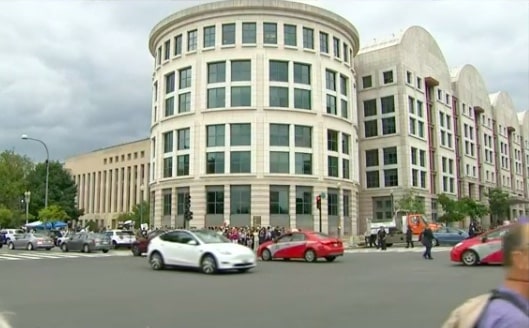U.S. District Court Judge Tanya Chutkan has set a hearing for Friday at 10am ET to determine how evidence can be used and shared in former President Trump’s criminal case related to the 2020 election.
The judge set the time and date after she asked both sides in the case—federal prosecutors in Special Counsel Jack Smith’s office and Trump’s defense team—to get together Tuesday and give her an agreed-upon schedule for the hearing that afternoon.
Federal prosecutors responded Tuesday afternoon by telling Chutkan that their team could be ready for a hearing any day this week. The Trump team asked for a Monday or Tuesday hearing—despite Judge Chutkan stating that she wanted to hold the hearing on or before this Friday.
The hearing was scheduled after special counsel prosecutors requested a protective order with more restrictions to help prevent Trump from making evidence public. Trump’s defense team responded by asserting that the order is too broad, saying it puts undue limits on the former President’s First Amendment rights.
Prosecutors were motivated to ask for the protective order after Trump posted on his Truth Social platform, in all caps, “IF YOU GO AFTER ME, I’M COMING AFTER YOU!”
Trump posted one day after his pleaded not guilty to four criminal counts surrounding attempts to overturn the 2020 Presidential election and the related the January 6, 2021 insurrection on the U.S Capitol. During his arraignment, he swore before Magistrate Judge Moxila A. Upadhyaya that he would not intimidate witnesses or communicate with them without legal counsel present.
Protective orders are common in criminal cases. However, special counsel prosecutors said it’s “particularly important in this case” because Trump has posted on social media about “witnesses, judges, attorneys, and others associated with legal matters pending against him.”
The prosecution further said it’s ready to hand over a “substantial” amount of evidence, including “sensitive and confidential information” to Trump’s defense team, asserting that if Trump were to begin posting about grand jury transcripts or other evidence, it could have a “harmful chilling effect on witnesses or adversely affect the fair administration of justice in this case.”
The Department of Justice’s protective order seeks to prevent Trump and his attorneys from divulging materials provided by the government to anyone other than people on his legal team, possible witnesses or their attorneys, or anyone approved by the court. The order would also place stricter limits on “sensitive materials,” including grand jury witness testimony and materials obtained through sealed search warrants.
Trump’s defense team responded by requesting to narrow the protective order, to shield only “genuinely sensitive” material from public view.
PHOTO: DC Federal Courthouse during Trump’s August 3 arraignment


